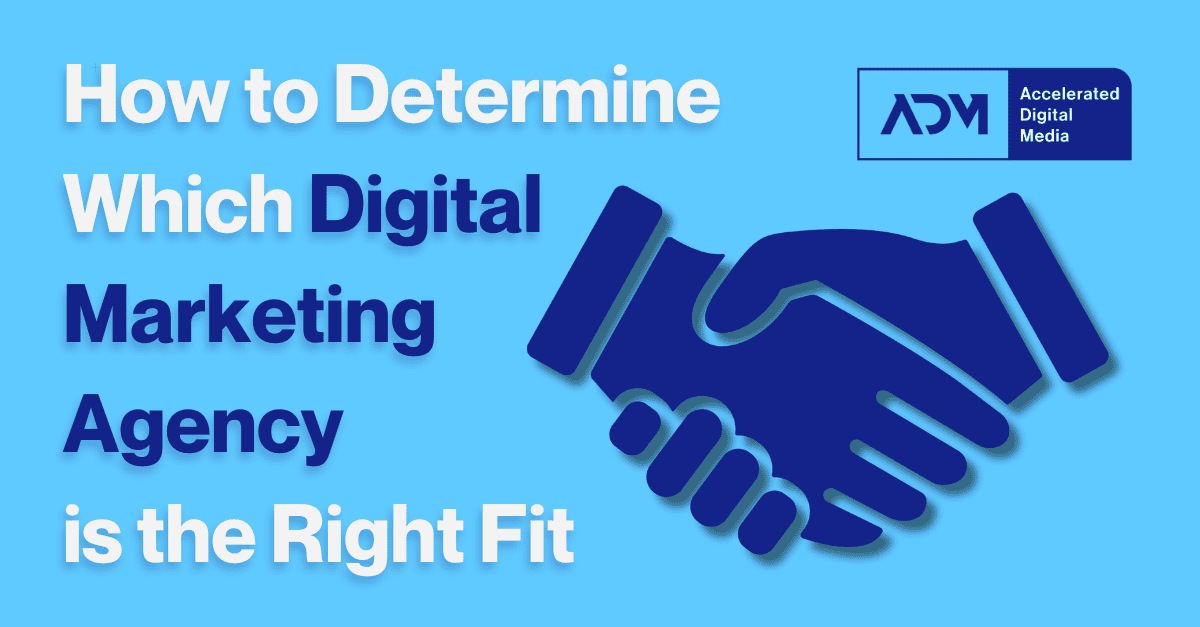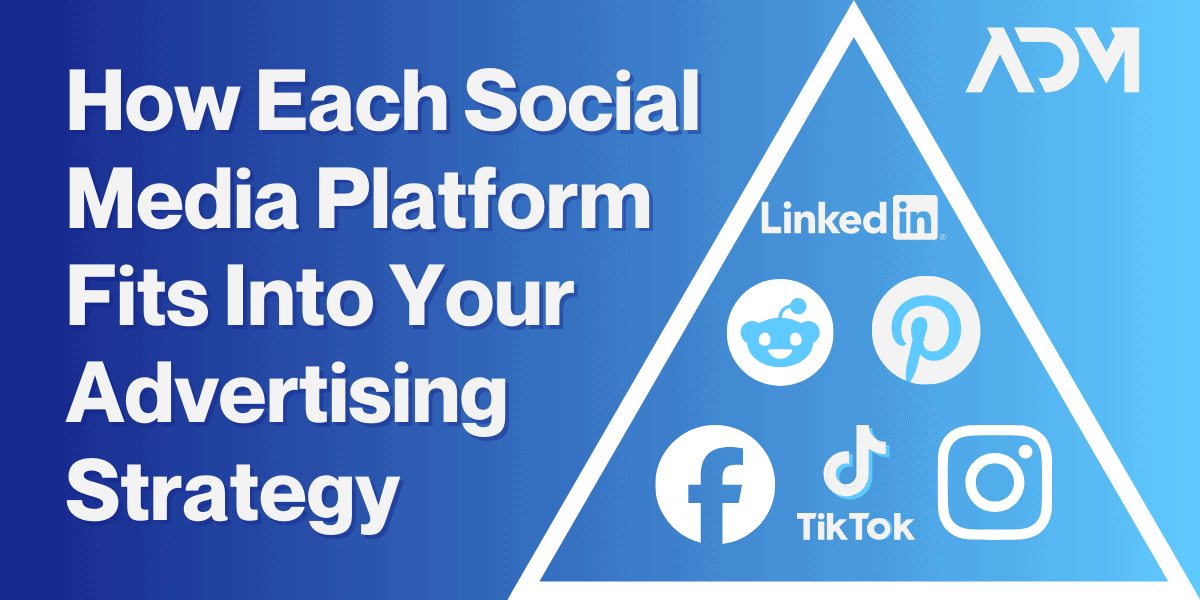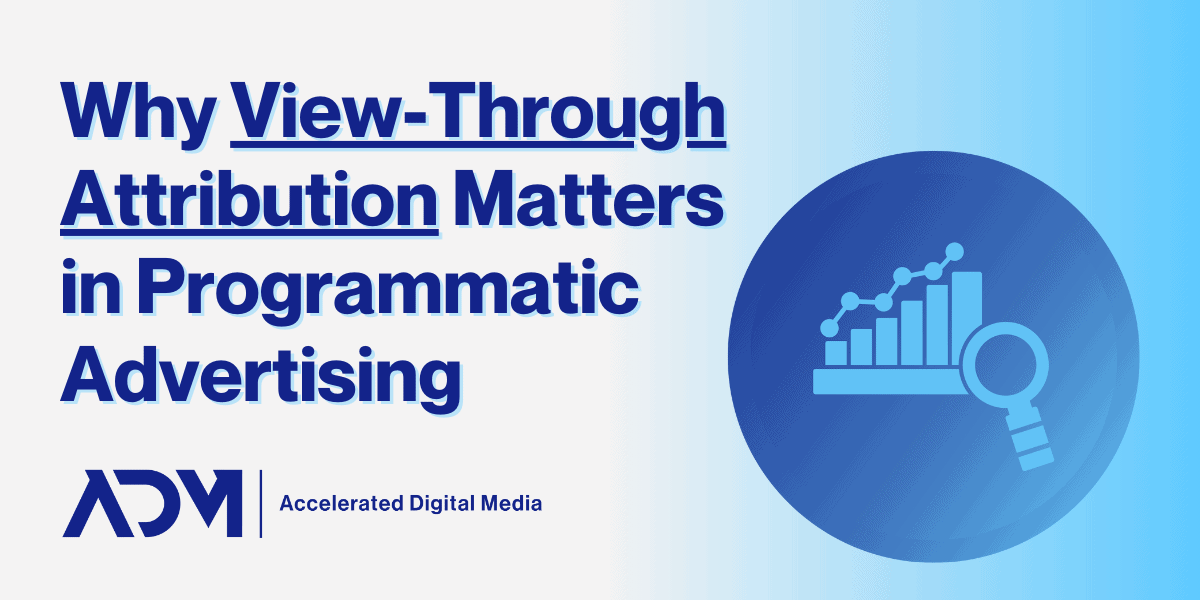Every brand works hard on developing its identity and creating a great product to sell—but all that effort will be hard to justify if you just turn around and partner with the first digital marketing agency you meet.
Your search for a digital marketing agency will depend on finding a suitable partner that aligns with your needs and goals. Even if many offer similar capabilities, each will have its own distinct culture, philosophy, and strengths that will determine whether they’re the right fit for your brand’s future. In this blog, we’ll discuss seven factors to look for when weighing whether a digital marketing agency is the right fit for your brand.
1. Service Offerings
The first factor in choosing a digital marketing agency is simply whether they offer what you’re trying to do—and if they’re good at it. Some digital marketing agencies are hyper-specialized in one channel, but not as skilled in others: for instance, offering paid social doesn’t inherently mean an agency will be experts on the exact paid social networks you want to advertise on.
It’s very easy for agencies to claim familiarity with a marketing channel, but you should be looking for examples of results that assure you a given agency will be capable of achieving your marketing goals and driving business success. At ADM, we have a wide service offering that includes SEM, paid social, programmatic advertising, creative advisement, and technical implementations for attribution and measurement. But we also have a wide network of strategic partners to supplement any services that may interest a client but aren’t currently part of our standard offering.
2. Size and Agility
As with anything else in marketing, finding the right size agency is often a tradeoff. Large agencies will often offer extensive resources, specialized services, established processes, scalability, and brand reputation, which can be advantageous for companies seeking a comprehensive network and support system. However, they also tend to have higher employee turnover, which can lead to client accounts cycling through different managers more rapidly over time.
Smaller agencies typically provide more personalized service, and many advertisers prefer the level of customization and continuity with their agency points of contact. Smaller team structures also allow for increased agility, meaning smaller agencies can quickly implement new tools and shift strategies depending on clients’ needs. And while service prices can vary widely across both large and small digital marketing agencies, the smaller ones tend to be lower-priced or more flexible about working out custom agreements.
3. Track Record and Expertise
It’s hard to overstate the importance of partnering with a digital marketing agency that has specific expertise and experience in your industry, especially if you’re advertising in a complicated or niche field. A specialized marketing partner will best understand the unique challenges that companies like yours face, and should have some established practices and solutions to draw from when setting up your strategy.
When evaluating an agency’s experience, scrutinize their client history for relevance to your own company and verify claims through references, case studies, and testimonials. See if they have worked with any companies that resemble yours and ask them how they confronted the particular challenges your brand faces.
Even if an agency hasn’t worked with clients exactly like your own, they may still be able to solve your marketing problems if they’ve proven themselves across an array of diverse challenges. For instance, our agency specializes in quite a few fields, but our deepest experience lies in eCommerce and healthcare marketing. Healthcare is one of the most complicated, sensitive, and highly-regulated fields you can advertise in, and our experience there has helped us win clients even outside of the field because we’ve proven ourselves capable of navigating that degree of complexity.
4. Reporting Capabilities
Accurate and digestible reporting is a cornerstone of successful marketing relationships. Digital marketing agencies need to be on the same page as their clients about pursuing and achieving their goals, and robust reporting fosters the transparency and alignment needed for continual optimization and growth.
Not only should reporting be thorough and clear, it should also be customizable. Based on your brand’s marketing needs, there are certain metrics and outcomes that likely matter more than others. If your sole purpose in partnering with a digital marketing agency, for instance, is to improve your top-of-funnel outreach to grow brand awareness and recognition, a cookie-cutter report that primarily focuses on bottom-of-funnel outcomes will not be useful.
When vetting potential agency partners, ask to see example reports that reflect the metrics that matter most to your brand—or see if they could build out a hypothetical one based on the strategies they have proposed.
5. Measurement Capabilities
Because so much of digital marketing today relies on optimizing towards certain conversion actions and behaviors, all of those need to be traceable. Many brands take for granted the fact that not all digital marketing agencies have the same knowledge or capabilities when it comes to gathering and synthesizing user engagement data from multiple sources. You’d be surprised by how many clients come to ADM having been told by a prior agency that certain user actions or trends couldn’t be measured when that actually wasn’t true—the prior agency just didn’t know how to set it up.
This is especially important for multi-channel marketing. Ideally, your different marketing channels should all be complementing each other, which means you need verifiable ways to see things like how your Connected TV or paid social ads are supplementing your paid search strategy. Before speaking with a prospective marketing agency, gather up all of the indicators that help you define success and engagement—and ask them whether they are able to measure and optimize towards each.
6. Culture and Communication
A digital marketing agency’s culture and communication approach play a critical role in shaping the quality of its services and the success of your marketing strategies. Strong agencies treat their clients like true partners and stake their own success upon their clients’, which translates into more motivated teams and better results for your business.
That attitude also fosters open communication between the two sides. While 24/7 accessibility shouldn’t be expected, you should be able to establish direct communication channels with your agency contact to get any questions or concerns attended to promptly. Likewise, the agency needs to have established methods for keeping clients informed about changes to strategy or potential new ideas.
Agency experts should speak to clients at their level of understanding about strategy: No one benefits if reporting calls are just a torrent of technical jargon that the client can’t follow, but oversimplification can also stall progress. While the nature of how a partnership will develop can take some time to emerge, pay special attention to how the agency responds to your questions during initial conversations or your startup audit. Ultimately, a good partnership should challenge both parties to bring their best ideas to the table every time they meet, and that can only happen if all sides are sharing a common language.
7. Innovation and Flexibility
Digital marketing is not a static field, so digital marketing agencies have to prove to prospective clients that they are on top of the latest trends and technological shifts. Brands should always seek out an agency that is constantly evolving, integrating the latest tools in its marketing strategies, and finding solutions to the ever-changing challenges faced by businesses.
Right now, so much of digital marketing is in flux. States and countries are implementing new user privacy laws that change how advertising platforms can work. Ad platforms are increasingly introducing new AI-powered campaign types that many agencies have yet to fully master. And even the Google search engine results page (SERP) is changing rapidly, realigning how brands must prioritize paid search, shopping, and video content. As you continue your search for the right digital marketing agency, research some of these environmental factors that might impact how your marketing will work going forward—and ask serious questions about what the agency is doing to prepare for a marketing future that will look different every year from now on.
Choosing an Agency that Fits
Brands have a lot to consider before committing to a new digital marketing agency. Choosing the right digital marketing agency involves thorough research and evaluation. By weighing factors such as agency size, reporting capabilities, innovation, employee culture, and industry expertise, you can find a suitable partner to help elevate your brand’s online presence and growth. To ensure you’ve made the right choice, keep up-to-date on industry trends and best practices, and consider reaching out to a firm like ADM for a consultation or digital marketing audit of your current strategies and potential.



